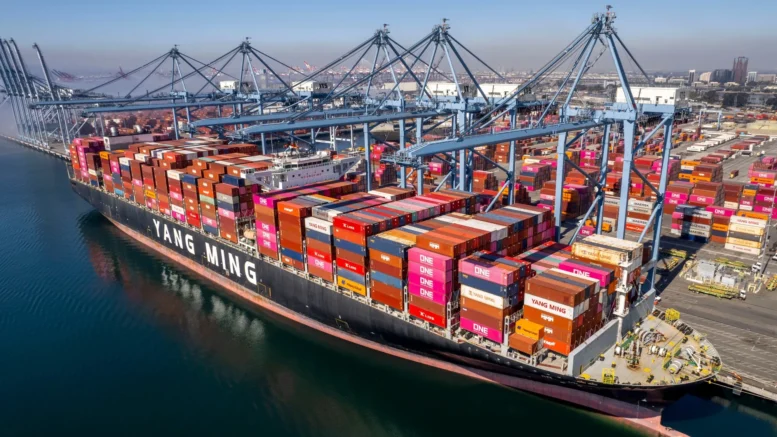Tariffs, the taxes imposed by a government on imported goods, play a significant role in international trade. They can have far-reaching effects on various stakeholders, including salespeople. Understanding how tariffs affect the market and developing strategies to navigate these changes can help salespeople maximize their sales even in challenging times.
The Impact of Tariffs on Salespeople
Price Increases
One of the most direct effects of tariffs is the increase in the cost of imported goods. When tariffs are imposed, the additional cost is often passed down to consumers, leading to higher prices. For salespeople, this means that products they are selling may become more expensive, potentially reducing demand. Higher prices can make it more challenging to close sales, as customers may seek cheaper alternatives or delay purchases.
Market Uncertainty
Tariffs can create uncertainty in the market. Changes in trade policies can be unpredictable, causing fluctuations in supply chains and market stability. Salespeople may find it difficult to plan and forecast sales accurately, as the market conditions can change rapidly due to new tariffs or changes in existing ones. This uncertainty can affect their ability to set realistic targets and achieve them.
Supply Chain Disruptions
Tariffs can disrupt supply chains, as businesses may need to find new suppliers or deal with delays and additional costs. For salespeople, this can mean longer lead times and potential stock shortages. They may need to manage customer expectations and communicate effectively about any disruptions in product availability.
Competitive Pressure
When tariffs are imposed on certain goods, domestic producers may gain a competitive edge over foreign suppliers. While this can be beneficial for salespeople dealing in locally produced goods, it can be challenging for those who rely on imported products. Salespeople may face increased competition from domestic alternatives, requiring them to differentiate their offerings and provide added value to their customers.
Strategies for Salespeople to Maximize Sales
Understanding Tariff Implications
Salespeople should stay informed about the latest tariff developments and understand how they impact their industry. This knowledge will enable them to anticipate changes and adjust their strategies accordingly. Staying updated on trade news and attending industry seminars can provide valuable insights.
Building Strong Relationships
Maintaining strong relationships with customers and suppliers is crucial during times of uncertainty. Salespeople should communicate openly with their clients about potential price changes and supply chain disruptions. Building trust and demonstrating a commitment to meeting customer needs can help retain business even when challenges arise.
Offering Value-Added Services
To stay competitive, salespeople should focus on offering value-added services that differentiate their products from competitors. This could include providing exceptional customer service, offering maintenance and support packages, or bundling products with complementary items. By enhancing the overall customer experience, salespeople can justify higher prices and build loyalty.
Diversifying Product Range
Salespeople should consider diversifying their product range to reduce dependency on any single market or supplier. By offering a broader selection of products, they can mitigate the risk associated with tariffs on specific goods. This diversification can also open up new sales opportunities and attract a wider customer base.
Leveraging Technology
Utilizing technology can help salespeople navigate the challenges posed by tariffs. Customer relationship management (CRM) systems can streamline communication and provide insights into customer behavior. Data analytics can help salespeople identify trends and adjust their strategies accordingly. E-commerce platforms can expand reach and offer alternative sales channels.
Negotiating with Suppliers
Salespeople should work closely with their suppliers to negotiate better terms and explore cost-saving opportunities. This could involve seeking volume discounts, exploring alternative sourcing options, or collaborating on marketing initiatives. Strong supplier relationships can lead to more favorable conditions and help mitigate the impact of tariffs.
Conclusion
Tariffs can present significant challenges for salespeople, affecting prices, market stability, and supply chains. However, by understanding the implications of tariffs and adopting proactive strategies, salespeople can navigate these challenges and maximize their sales. Staying informed, building strong relationships, offering value-added services, diversifying product range, leveraging technology, and negotiating with suppliers are all key tactics that can help salespeople thrive in a tariff-affected market. By being adaptable and customer-focused, salespeople can turn challenges into opportunities and continue to achieve their sales goals.
Written by: Hans Hansson
hans@starboardcre.com
Hans Hansson is the President of Starboard Commercial Real Estate. Hans has been an active broker for over 35 years in the San Francisco Bay Area and specializes in office leasing and investments. If you have any questions or comments please email hans@starboardcre.com or call him at (415) 765-6897.




